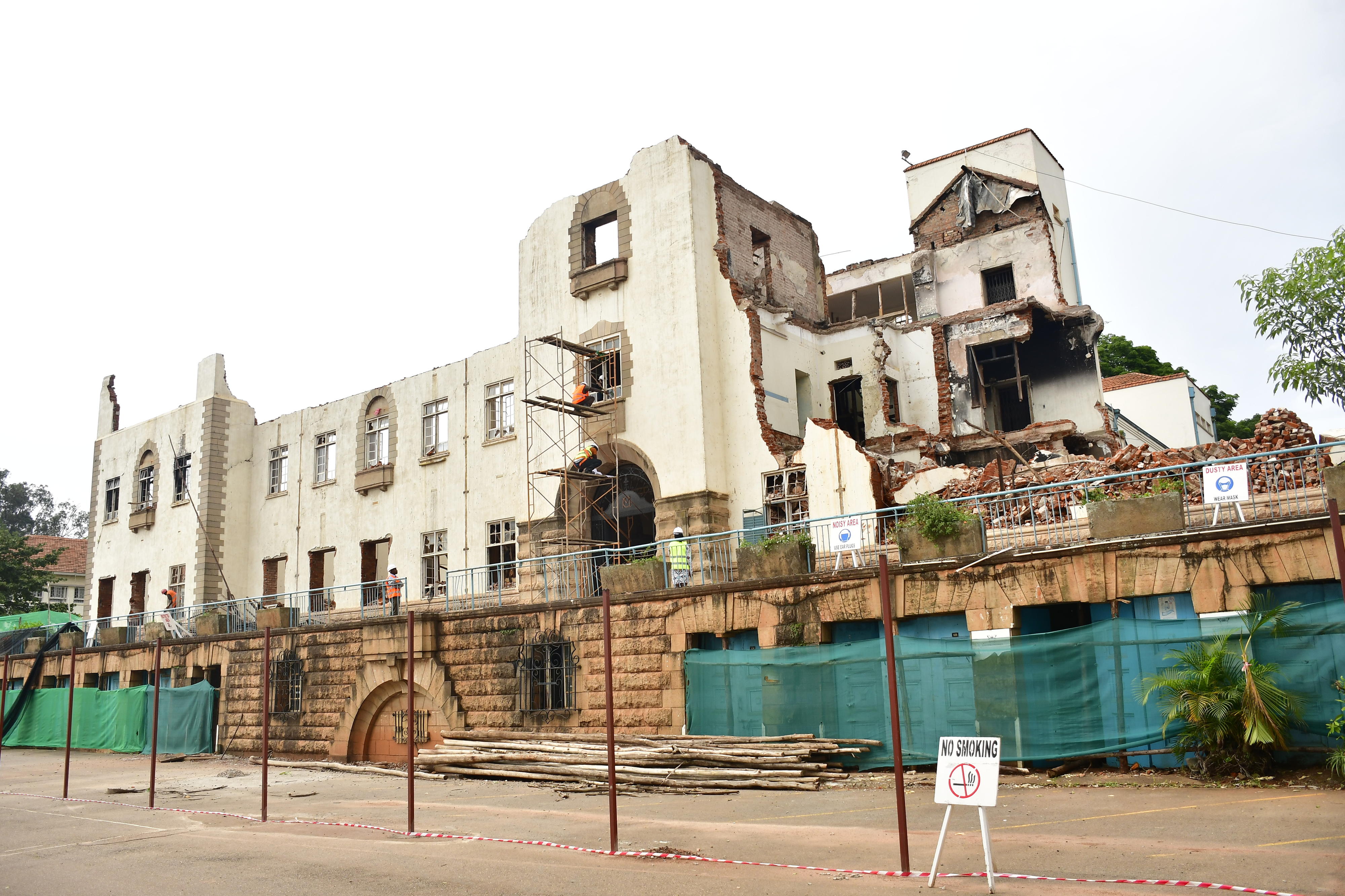Prime
Makerere to get back its radio

Makerere University main building. Photo | File
What you need to know:
- The university’s Deputy Vice Chancellor Academic Affairs, Prof Umar Kakumba, told top managers of the department of journalism and communication last week that the ICT minister, Dr Chris Baryomunsi, was shocked to learn that the radio frequency was taken away.
The government is in the process of reinstating Makerere University's radio frequency, which Uganda Communication Commission (UCC) took away 11 years ago.
The university’s Deputy Vice Chancellor Academic Affairs, Prof Umar Kakumba, told top managers of the department of journalism and communication last week that the ICT minister, Dr Chris Baryomunsi, was shocked to learn that the radio frequency was taken away.
“Minister Baryomunsi assured us that our frequency will be reinstated because it is important not just for broadcasting news, but for training our learners. He said his office would liaise with the UCC over the matter,” Prof Kakumba said.
He made the remarks during the launch of new programmes; Master of Arts in Strategic and Corporate Communication and Masters of Arts in Journalism and Multimedia.
Prof Kakumba instructed officials from the department to follow up with UCC.
Dr Baryomunsi yesterday confirmed the development.
“I am yet to contact UCC managers to explain why they took the radio frequency of the university and I am sure it will be reinstated, ” he said.
The radio frequency was switched off over alleged failure by the institution to pay Shs15m licensing fees.
Welcome move
Dr Aisha Nakiwala, the head of the journalism department, said the reinstatement has been overdue.
“We are very excited that the government has started the talks to have our radio returned. This will boost our training, ” Dr Nakiwala said.
Dr Adolf Mbaine, a senior lecturer in the department, said broadcast students have been disenfranchised without the radio station.
“Radio is a key teaching tool, especially to those students who specialise in broadcasting. We understand our frequency was given to a certain church but if it is to be returned, it is a welcome idea,” he said.
Dr Mbaine added that the university needs both the radio and the television to produce high quality students.
At the same function, the university Vice Chancellor, Prof Barnabas Nawangwe, tipped the department on plans to upgrade it to a school.
In his statement that was read by Prof Kakumba, Prof Nawangwe said: “I wish to reiterate what I promised three years ago that I will be available to support such an endeavor should you apply to the university for higher status, given the rate at which you are growing.”
Prof Kakumba said a department should have more programmes at graduate and undergraduate level, have at least 20 professors, many senior lecturers and PhD staff to become a school.
He said the department currently has 13 PhD staff and with the launched masters programmes, it is making progress.




